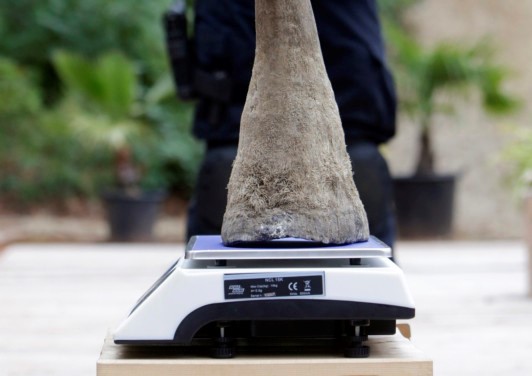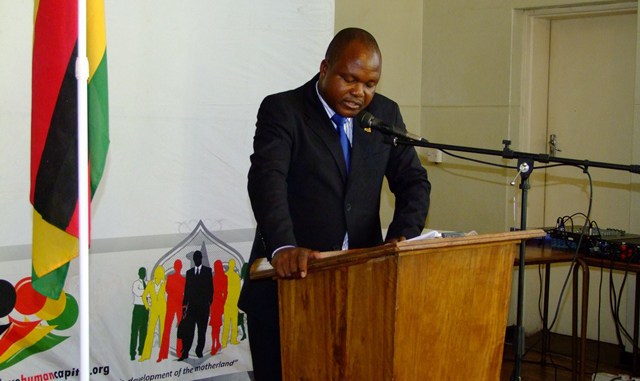Synthetic rhino horn ready
'in two years'
By Matt
McGrath Environment correspondent, Johannesburg
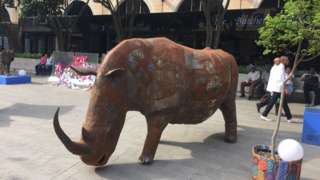
The question
of synthetic rhino horn has been discussed at the Cites meeting in Johannesburg
The man
behind attempts to develop synthetic rhino horn has told the BBC that he hopes
to have a "bio-identical" product ready to market in two years.
Matthew
Markus, CEO of Pembient, believes that introducing a highly similar but
manufactured horn could help stem the rhino-poaching crisis.
Here at
the Cites meeting the plans have been condemned by conservationists as
"too risky".
Campaigners
want the species body to ban synthetics from endangered animals.
Rhino start-up
Over the
years, the development of human-made alternatives to some natural species has
seen some success.
Orchids
produced in the laboratory have served as an alternative for collectors while a
synthesised version of the chemical that's found in bear bile has been accepted
in traditional Chinese medicine.
Now, a
number of start-ups are seeking to develop alternatives for rhino horn and
elephant ivory.
The most
advanced is said to be a company called Pembient who believe they are very close to
producing solid, horn-like material.
"Earlier
this year, we produced low fidelity prototypes, they are solids but they don't
have all the properties of rhino horn and we are working now to produce these
high quality bio-identical solids," CEO Matthew Markus told BBC News at
the Cites meeting.
The price
of rhino horn can range up to $60,000 per kg
"The
higher fidelity prototypes may take two years and that's unless all this flak
scares investors off."
The
"flak" that Mr Markus is talking about is the opposition from
conservationists and wildlife campaigners to his ideas.
They are
concerned about anything that could make the current rhino poaching surge worse.
The
number of rhinos killed for their horns has risen dramatically over the past nine years.
In 2007, just 13 rhinos were killed in South Africa. Last year, that number was
1,175.
At a side
event here in Johannesburg, campaigners vociferously denounced the synthetic
rhino idea.
"We
are very concerned that these synthetic products would provide a cover for
illegal trade," said Lee Henry from WWF.
"How
are enforcement officers on the ground supposed to distinguish between the
two?"
Illicit market
But for
Mr Markus, that inability to readily differentiate between his product and the
real thing is exactly what he's hoping to achieve.
"This
is an illicit market, these people are not supported by states, so here
counterfeits especially if they are exactly the same should have a very
disruptive effect.
Rhino
horns are sometimes trimmed for safety in transport
"The
only thing that guarantees that you are getting the product you think you are
getting is the product itself, if you can destroy the uniqueness of that
product through bio-fabrication, I think that's a win."
Mr Markus
acknowledges that his approach is not without risk - but he maintains that the
synthetic model has been well scrutinised and is less of a threat than his
opponents maintain.
But
campaigners are not convinced. They are concerned that the synthetic materials
could inspire new markets and make the situation for the rhino even worse.
"In
traditional medicines, people prefer wild products, that's seen as more
valuable - they don't want products from farms or synthetic markets," said
Lee Henry.
"For
a species like rhino that are being decimated by poaching for their products,
do we want to test this now? I think it's too big a risk to take, history has
shown that when you create alternative products it doesn't reduce demand for
the genuine article."
Rhino
poaching has soared over the past nine years
Here at
Cites some countries have argued that synthetic products derived from
endangered species should come under the regulations of the Convention.
So if
something is made from the DNA of a rhino that is on Appendix I, then all trade
in those synthetic products should be banned as well.
The Cites
secretariat will assess the position but it will be next year before there is
any clarity on whether they have the power to regulate or not.
Matthew
Markus says he will accept any outcome based on science and impartial
regulation. But banning his products, if they ever reach the market, would be a
mistake he says, if people are serious about stopping rhino poaching.
"The
fastest way to shut a market down is to support counterfeiters and not
prosecute them."
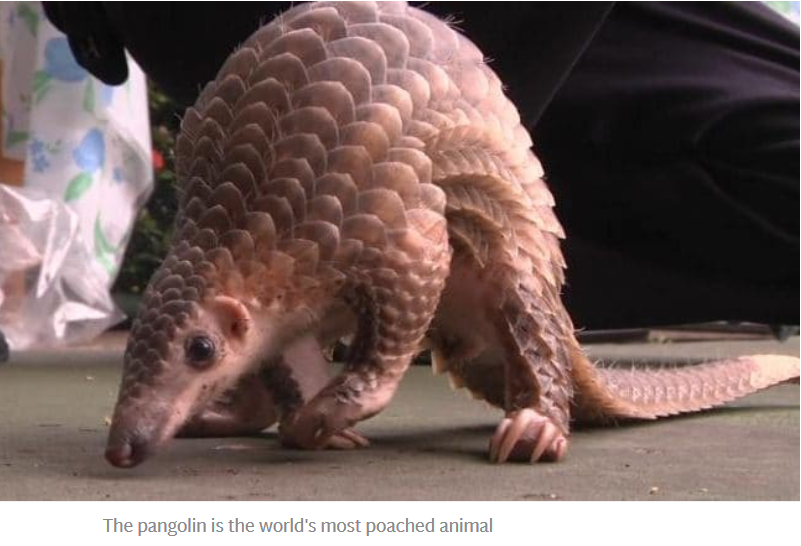

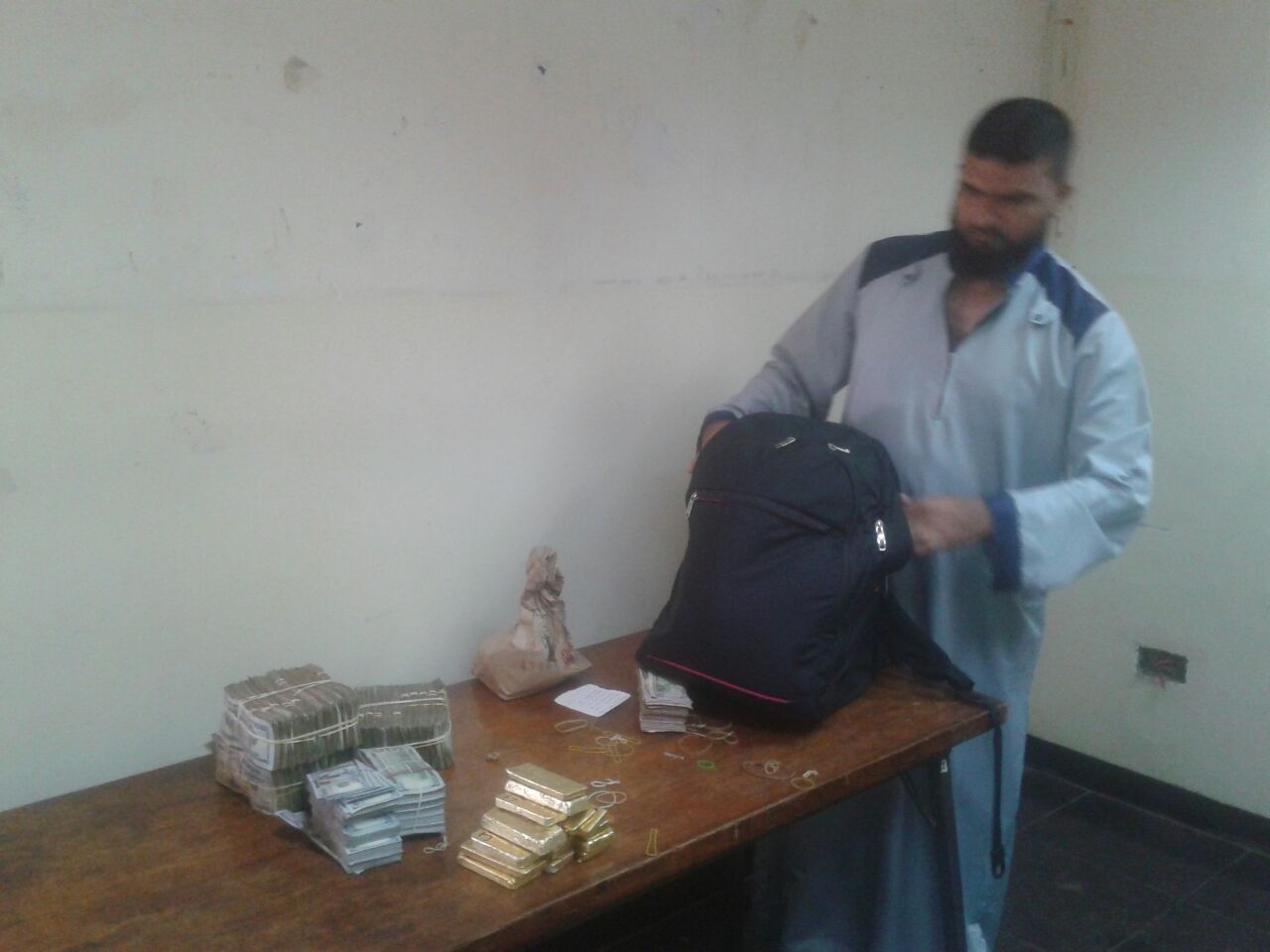
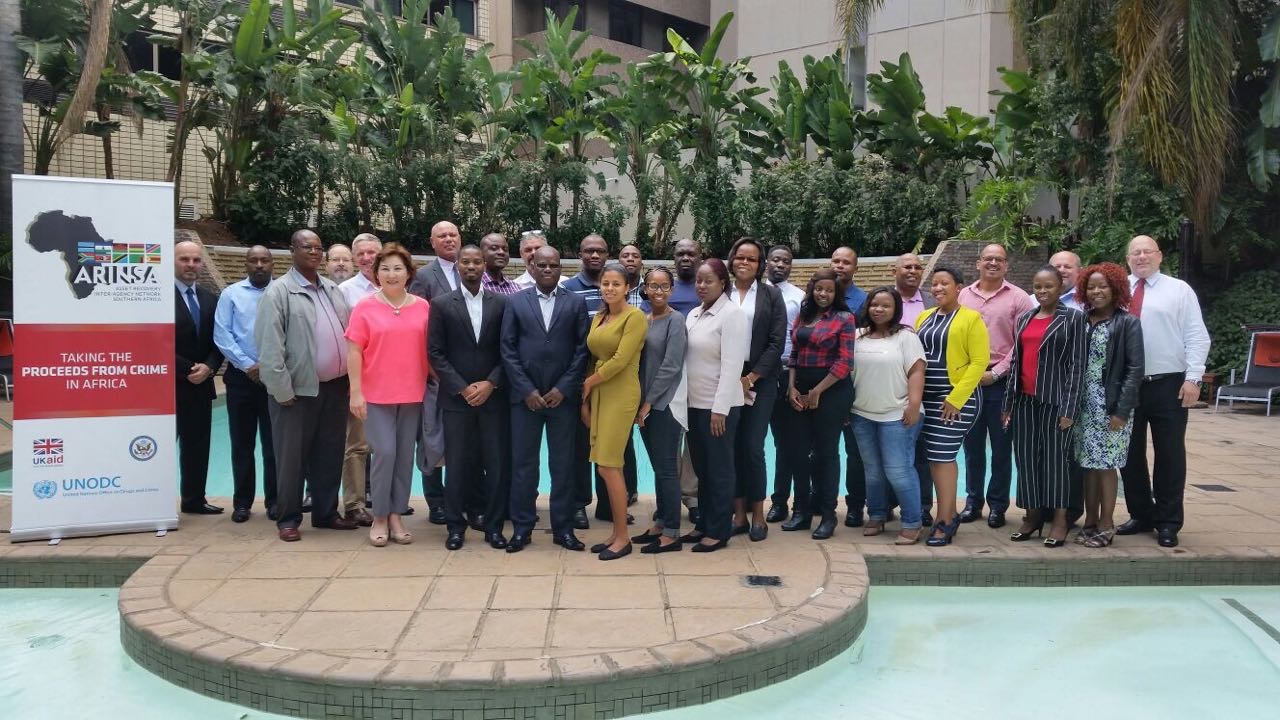 Pretoria, South Africa. Established in 1997, UNODC’s Global Programme against Money Laundering, Proceeds of Crime and the Financing of Terrorism (GPML) seeks to assist member states in complying with all UN Conventions and other instruments that concern Anti-Money Laundering (AML) and Counter-Terrorist Funding (CTF). Operating notably under the mandate of the 2000 Palermo Convention, the 2003 Merida Convention, and the 40 recommendations of the Financial Action Task Force, its purpose is to raise awareness, build institutions, and train legal, financial, and law enforcement authorities at a national/regional level to develop necessary AML/CFT infrastructure to effectively address all GPML-related activities within their jurisdictions.
Pretoria, South Africa. Established in 1997, UNODC’s Global Programme against Money Laundering, Proceeds of Crime and the Financing of Terrorism (GPML) seeks to assist member states in complying with all UN Conventions and other instruments that concern Anti-Money Laundering (AML) and Counter-Terrorist Funding (CTF). Operating notably under the mandate of the 2000 Palermo Convention, the 2003 Merida Convention, and the 40 recommendations of the Financial Action Task Force, its purpose is to raise awareness, build institutions, and train legal, financial, and law enforcement authorities at a national/regional level to develop necessary AML/CFT infrastructure to effectively address all GPML-related activities within their jurisdictions. 